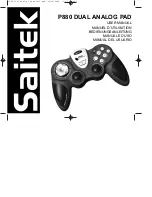
4
IOM-8310HP/LP-BASIC
Regulator Size
Torque
Bolt Size
1-1/2" - 2" (DN32-50)
50 Ft-lbs (68 Nm)
1/2"
3" - 4" (DN80-100)
100 Ft-lbs (136 Nm)
5/8"
11. Fully thread stem lock nut (19) and pusher plate (17)
on end of valve plug assembly (12). Refer to Figure
1 for correct orientation of the pusher plate (17).
12. Calibrate diaphragm (20) setting and correct valve
plug assembly (12) travel as follows:
a) Lift and hold valve plug assembly (12) up tight
against the seats (10 and 11).
b) Adjust the pusher plate (17) so that the gasket
surface face of the pusher plate (17) is flush with
the top of the diaphragm case (14) flange.
c) Draw the stem lock nut (17) up tight against
the pusher plate (17) by holding “flats” milled
on pusher plate (17).
13. Grasp threaded end of valve plug assembly (12) by
hand and ensure that the assembly moves freely
by lifting the valve plug assembly (12) in and out
of the seats (10 and 11), making sure it does not
“stick”. If it does not move freely, rotate valve plug
assembly (12) CW until new position is found which
allows optimum “free vertical movement” in and out
of seats.
14. Proceed with diaphragm (20) assembly instructions
in accordance with Section IV.B., steps 10 through
18.
NOTE: Do not rotate valve plug assembly (12)
from optimum “free vertical movement” position
during final assembly.
NOTE: Never replace bolting (29) (30) with just
any bolting, if lost. Bolt heads and nuts are marked
with specification identification markings. Use only
proper grades as replacements.
17. Reinstall adjusting screw (or T-bar) (32) with lock
nut (or lever) (33).
18. Spray liquid leak detector to test around bolting
(29)(30), diaphragm case (14), and spring chamber
(13) flanges for leakage. Ensure that an outlet
pressure is maintained during this leak test of at
least mid-range spring level; i.e. 10-40 psig (.69-2.8
Barg) range spring, 25 psig (1.7 Barg) test pressure
minimum.
C. Trim Inspection:
1. To inspect the internal trim parts, refer to Section
VI.A. and B.1 through 9 for diaphragm replacement
and proceed as follows.
2. Secure the “flats” on the threaded end of the valve
plug assembly (12) with adjustable wrench and
remove pusher plate (17) and stem lock nut (19)
by rotating CCW (viewed from above).
NOTE:
Do
not rotate the valve plug assembly (12).
3. Draw or embed a match mark between body (1)
and bottom flange (3).
4. Loosen and remove body stud nuts (8) CCW
(viewed from bottom) to remove bottom flange (3).
Inspect the bottom guide bushing (4) for excessive
wear. If worn, both the guide bushing (4) and the
bottom flange (3) must be replaced.
NOTE:
DO
NOT REMOVE BONNET (2). The bonnet (2) acts
as a guide to align the valve plug assembly (12)
into the seat rings (10 and 11).
5. Firmly grasp end of the valve plug assembly (12)
by hand and pull out of the body (1) cavity.
6. Inspect the seating surfaces of the plug (12.1) for
nicks or excessive wear.
7. Using a flashlight or other light source, examine
the interior of body (1) cavity. Also, inspect the
seating surfaces of both the upper and lower seat
rings (10 and 11) for excessive wear. If either the
plug (12.1) or the seat rings (10 and 11) are worn
and in need of replacement, contact the factory
for authorization to return unit for repair.
NOTE:
Overhaul and replacement of trim parts is not
easily accomplished by non-factory trained
personnel.
8. Remove the lower body gasket (6) and clean seal-
ing surface thoroughly.
9. Install valve plug assembly (12) into body (1) and
place new body gasket (6) onto body (1).
10. Align match mark and replace bottom flange (3) on
body (1). Reinstall flange stud nuts (8). Mechani-
cally tighten nuts (8) in alternating cross pattern
that allows bottom flange (3) to be pulled up evenly.
Recommended torques values are as follows:


























